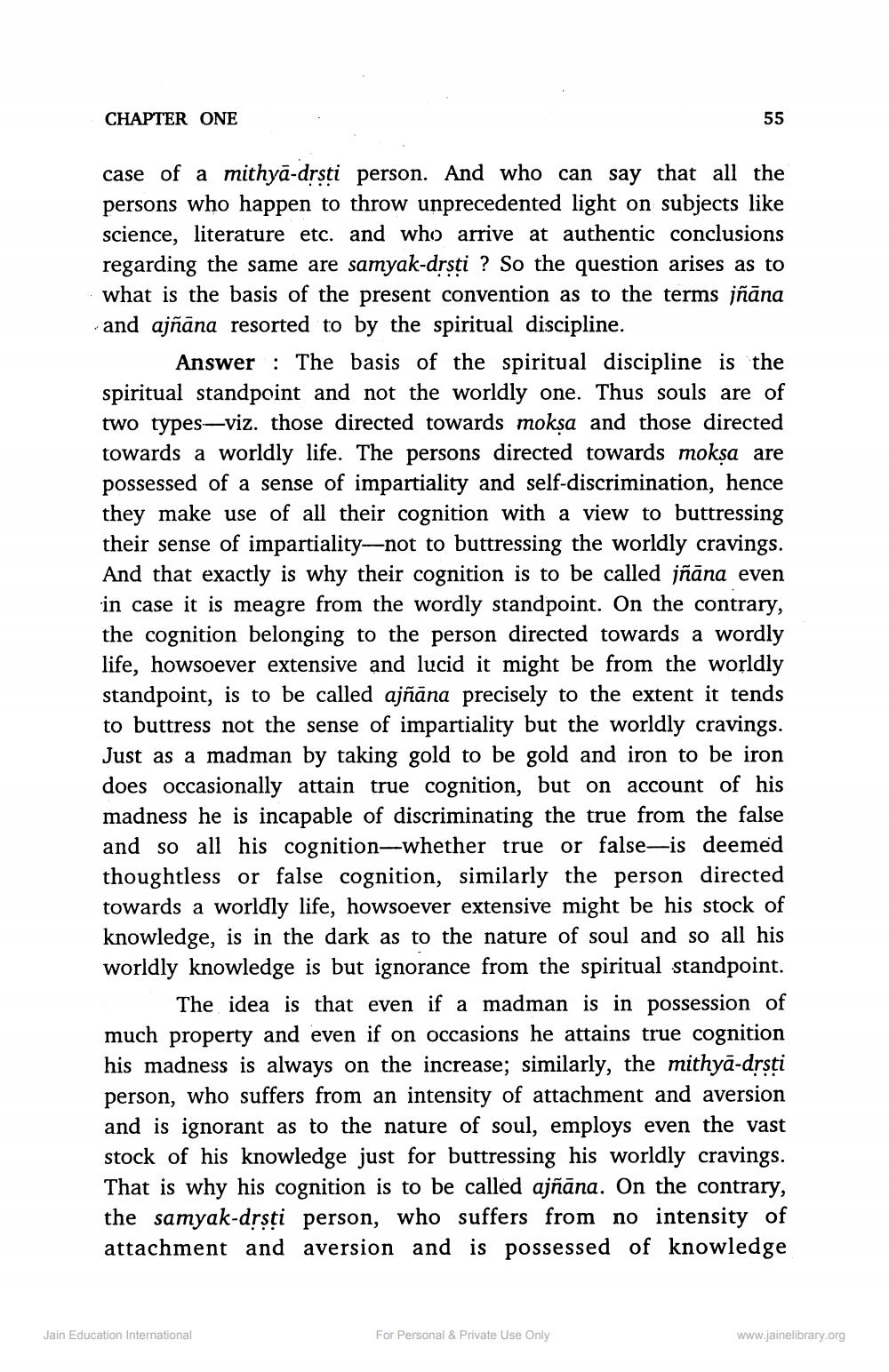________________
CHAPTER ONE
55
case of a mithya-drsti person. And who can say that all the persons who happen to throw unprecedented light on subjects like science, literature etc. and who arrive at authentic conclusions regarding the same are samyak-drsti ? So the question arises as to what is the basis of the present convention as to the terms jñāna and ajñana resorted to by the spiritual discipline.
Answer : The basis of the spiritual discipline is the spiritual standpoint and not the worldly one. Thus souls are of two types—viz. those directed towards moksa and those directed towards a worldly life. The persons directed towards mokşa are possessed of a sense of impartiality and self-discrimination, hence they make use of all their cognition with a view to buttressing their sense of impartiality-not to buttressing the worldly cravings. And that exactly is why their cognition is to be called jñāna even in case it is meagre from the wordly standpoint. On the contrary, the cognition belonging to the person directed towards a wordly life, howsoever extensive and lucid it might be from the worldly standpoint, is to be called ajñāna precisely to the extent it tends to buttress not the sense of impartiality but the worldly cravings. Just as a madman by taking gold to be gold and iron to be iron does occasionally attain true cognition, but on account of his madness he is incapable of discriminating the true from the false and so all his cognition-whether true or false—is deemed thoughtless or false cognition, similarly the person directed towards a worldly life, howsoever extensive might be his stock of knowledge, is in the dark as to the nature of soul and so all his worldly knowledge is but ignorance from the spiritual standpoint.
The idea is that even if a madman is in possession of much property and even if on occasions he attains true cognition his madness is always on the increase; similarly, the mithyā-drsti person, who suffers from an intensity of attachment and aversion and is ignorant as to the nature of soul, employs even the vast stock of his knowledge just for buttressing his worldly cravings. That is why his cognition is to be called ajñāna. On the contrary, the samyak-drsti person, who suffers from no intensity of attachment and aversion and is possessed of knowledge
Jain Education International
For Personal & Private Use Only
www.jainelibrary.org




